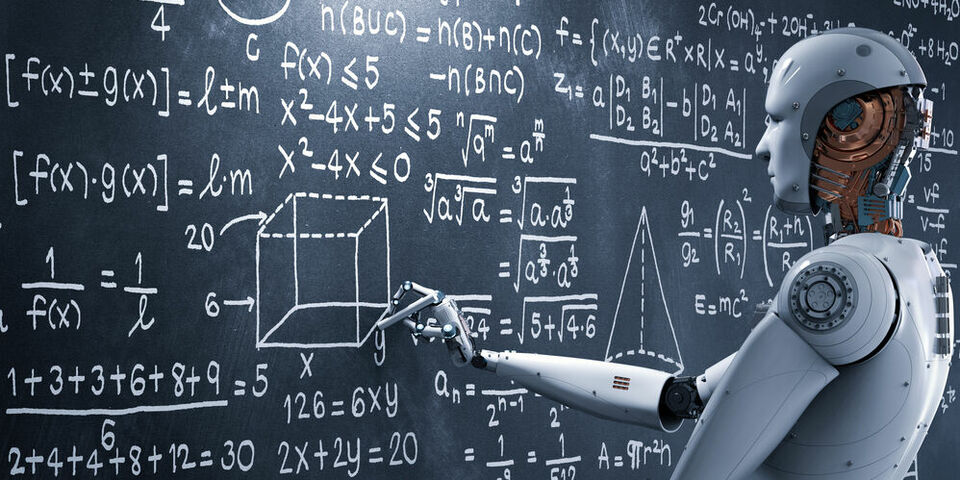TU/e will launch two new AI master's degrees after the summer
This coming academic year TU/e plans to start two new master's programs in the field of artificial intelligence. These are the independent Master's in Data Science and Artificial Intelligence (DS&AI), offered by the Department of Mathematics and Computer Science, and master's tracks under the banner of 'Artificial Intelligence for Engineering Systems (AIES)' at Mechanical Engineering and Electrical Engineering, which it is planned will eventually form an interfaculty master's program.
Artificial Intelligence for Engineering Systems will have a strong focus on applied artificial intelligence. The DS&AI program, by contrast, will be more deeply rooted in fundamental science, explains Associate Professor Dirk Fahland, who is closely involved in the program's development. “It will be the first master's in the Netherlands in which Data Science and Artificial Intelligence are combined.”
There was, Fahland believes, already a need at TU/e for an independent master's focusing on the technical side of Data Science, to supplement the Master's of Data Science & Entrepreneurship being offered in partnership with Tilburg University. “It is only logical that Data Science and AI be combined because these two disciplines are now closely interrelated.” In addition, the program is a good fit with the university's ambitions, in which artificial intelligence figures prominently now that the Eindhoven AI Systems Institute (EAISI) has been founded.
The main aim of the DS&AI program is to train AI engineers capable of building reliable systems while bearing in mind the people who will eventually use them, Fahland explains. “Among others, the high-tech systems being developed here in the region will find these systems valuable; their requirements are demanding when it comes to reliability.” As the students must be able to see problems from various angles, they will be given a broad basis that will include courses on the fundamentals of artificial intelligence, data visualization, ethics, algorithmics, data mining and management, and machine learning.
Accreditation
For the DS&AI program, following the go-ahead given by the Ministry of Education on January 6th, an application for accreditation has been submitted to the Accreditation Organization of The Netherlands and Flanders (NVAO). Since the NVAO requires up to six months to make its assessment, it is too early to say whether the program will indeed be able to start in 2020.
Interested students are therefore advised to enroll on the existing master's track in Data Science in Engineering (DSiE) run by the Department of Mathematics and Computer Science with a view to transferring to the new DS&AI. This will require that these students meet the admission requirements for DS&AI, which are a little different to those for DSiE. Provided the accreditation is granted in time, these students will be able to join the DS&AI program directly at the start of the new academic year; otherwise their transfer will take place a year later.
The plan is to phase out the DSiE master's track once the independent Master's in DS&AI has officially started: at that stage no new students will be admitted to this master's track.
Master's tracks EE and ME
The new master's track Artificial Intelligence for Engineering Systems does not require its own separate accreditation because it is not an independent program. Thus, come what may, this program will start in September 2020 in two forms, one at Electrical Engineering and one at Mechanical Engineering. According to policy officer Jan Vleeshouwers of EE, the intention is however to convert these two master's tracks into a single independent, interfaculty master as quickly as possible once they are underway. “Ideally, the two master's tracks will run for only a year. After that the students taking them will transfer to the new master's.”


Discussion